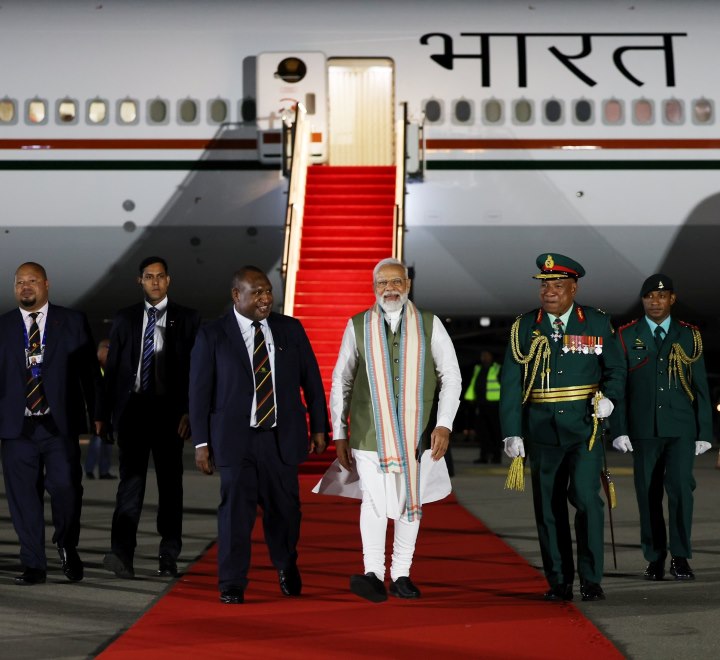Prime Minister Narendra Modi’s visit to Papua New Guinea has hit headlines, not just in India but across the world. The first visit ever by an Indian PM to the island nation, which is resource-rich, is expected to provide a big push to overall ties between the two nations at a time when the geopolitical thrust is shifting towards the Indo-Pacific region. Importantly, Modi’s visit to PNG will boost India’s voice in the Indo Pacific while containing the Chinese footprint.
“It’s another clear sign that China is not the only emerging great power intent on building its influence across the Pacific,” ABC News said, adding that as India’s strength grows, it too wants to build new trade, development and political links with Pacific island countries: particularly larger nations in the region like PNG.
PNG and Washington signed a defence pact which allows US forces to access its airfields and ports, a move seen by many as a measure by Washington to contain China’s increasing influence in the region.
With India’s mantra of strategic autonomy, several countries are now looking at deeper integration with New Delhi.
“India as an alternative international power source, economic source but also a leader in the movement on non-aligned nations over many, many years,” Paul Barker executive director of the Institute of National Affairs, an independent think-tank in PNG told a news organisation.
The visit also underscores India’s role as the voice of the Global South.
“We are victims of global powerplay… You are the leader of Global South. We will rally behind your (India) leadership at global forums,” Papua New Guinea prime minister James Marape told Modi who just wrapped up his visit.
Carnegie Endowment for International Peace said that island nations often feel left out of geopolitical discussions regarding the Indo-Pacific, particularly about initiatives involving them or in areas close to their sovereign waters. The concept of the Indo-Pacific itself, which is centered around the Indian and Pacific Oceans, did not initially include conversations with the islands on either side of the oceans.
Economic cooperation
PNG, the largest economy among the Pacific Islands, is also aggressively seeking foreign direct investments (FDI) especially in the natural resources sector. Deeper business and trade cooperation with other countries is also the need of the hour for PNG. Besides natural resources in mining, oil and gas, its forestry and fisheries sectors also provide opportunities to investors as well.
According to the PNG government, Marape’s “Take-Back PNG,” campaign has endorsed a fair, open, and collective approach in its decision-making processes, especially decisions concerning the proper management of the country’s resources and investment returns.
Amid calls for diversification of global supply chain network, Indian businesses must look at greater cooperation not just with PNG but other similar nations as well.
India’s engagements with PNG are not new. The Indian Naval Ship ‘Sahyadri’, commanded by Captain Anil Jaggi with more than 200 crew members on board, paid a three day goodwill visit to Port Moresby – the capital of PNG – in June 2017. In 2016, late President Pranab Mukherjee paid a visit to the Port Moresby. An 11 member delegation of the Confederation of Indian Industry also visited the Pacific nation to develop business ties.
However the earlier engagements had limited outcome. “But with the changing geopolitical thrusts, PM Modi’s visit is expected to have far reaching and positive ramifications,” an industry body member said.
Also read: PM Modi lauds Tamil language and culture in faraway Papua New Guinea




















